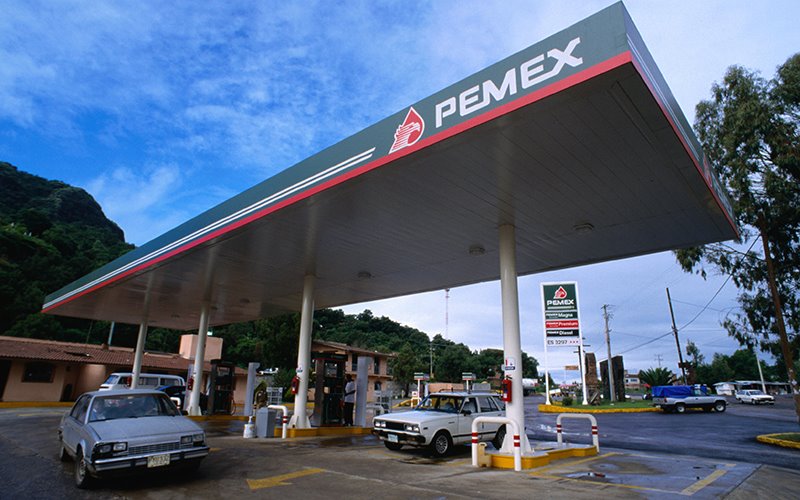
In Mexico, there’s a 1 in 3 chance that the gasoline being pumped into cars has been stolen, smuggled or adulterated. Image above shows a Pemex fuel station, mentioned in this article.
The scale of this black market economy, known locally as “huachicoleo,” is massive. Oil theft is now the second-largest source of revenue for organized crime in Mexico, just behind drug trafficking, according to a recent report by the US Drug Enforcement Administration (DEA).
For decades, fuel theft in Mexico involved criminals physically tapping pipelines owned by Pemex, the state-run oil company. But in recent years, they have adopted a more sophisticated method that involves smuggling fuel from the United States into Mexico, said David Mora, an analyst with the International Crisis Group in Mexico.
This oil is moved legally across the border from the US via truck, train or boats, and once in Mexico, criminal networks exploit regulatory loopholes, underreport quantities and disguise fuel as industrial lubricants. By doing that, they can bypass a number of taxes in Mexico, and gain a significant advantage over legal distributors.
PETROIntelligence, a Mexican company that provides market intelligence and consulting services for the energy and transportation sector, estimates that Mexico lost more than 177 billion pesos per year (about $10 billion) in potential taxes for imported gasoline..
The operation is highly sophisticated. “Nothing improvised or to be looked down upon,” said Samuel León, a Mexican researcher and author of a book on oil trafficking. “It involves entrepreneurs on both sides of the border, politicians, retail sellers and the infamous armed wings of the criminal networks.”
This illegal fuel enters the legitimate market through gas stations that often unknowingly purchase it. Alejandro Montufar, director of PETROIntelligence, said many of Mexico’s gas stations are small, family-owned businesses without the expertise or resources to verify their fuel’s origins.
The Mexican government currently lacks an effective system to trace the origin of fuel sold at service stations, making detection of fraud even harder. And even when gas station owners do suspect something is wrong, criminal groups coerce or intimidate them into buying stolen fuel.
Fuel theft is also deeply embedded in impoverished communities. In Puebla, organized criminal groups have opened fuel pipelines and created makeshift pools of diesel. They invite local residents, including women and children, to fill buckets in exchange for small payments.
This tactic not only distributes the stolen fuel but also creates a human shield. When uncorrupted authorities arrive, they’re faced with a volatile scene: flammable fuel, civilians present and no safe way to intervene, making enforcement very challenging.
Full article The hidden black market fueling Mexico’s cars — and its cartels - The World from PRX